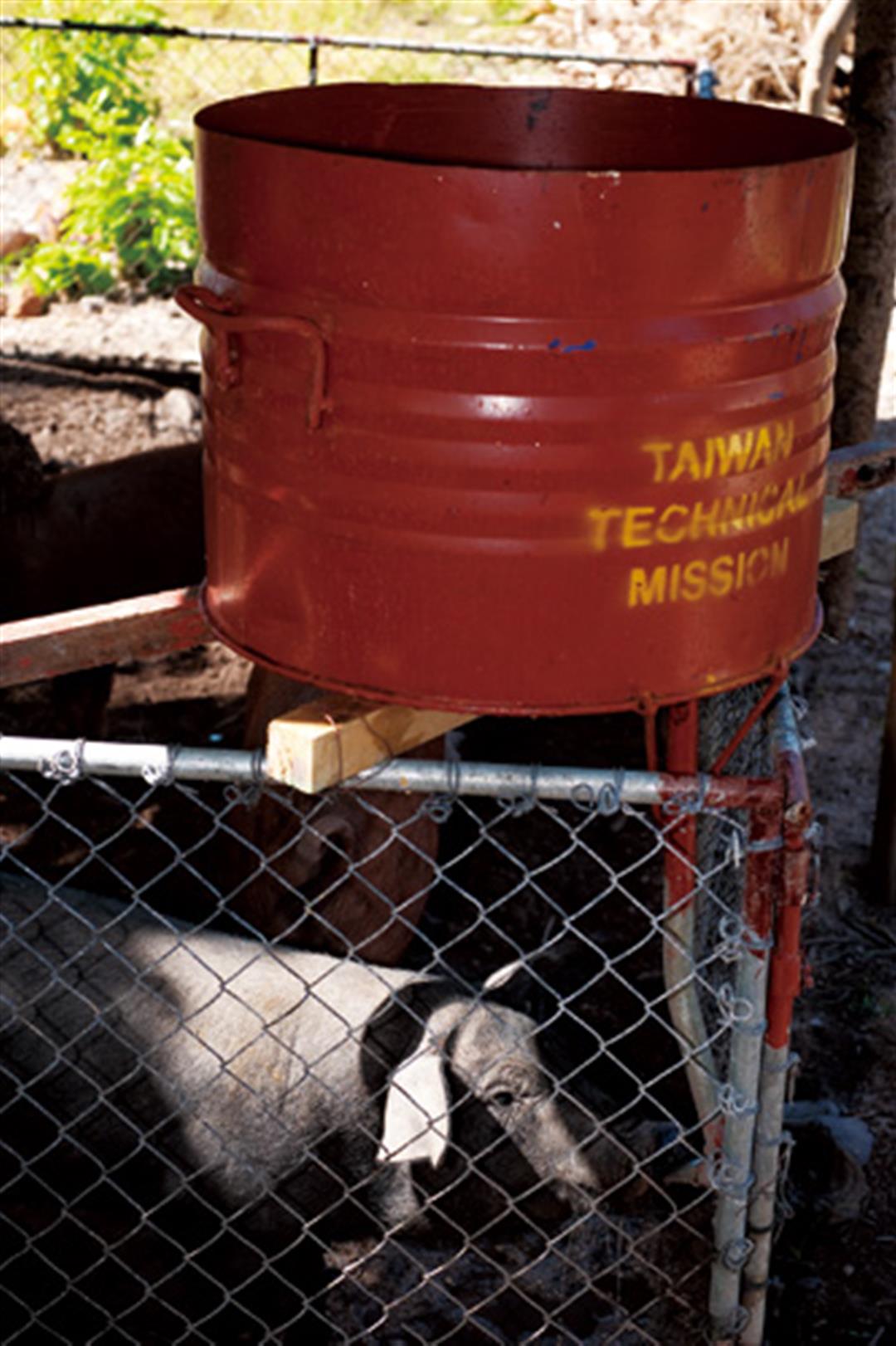Local conditions
Tuvalu has a tiny area of land which is narrow and vulnerable; even the largest island is only 10 to 700 meters in width, so for the prevention of natural disasters the nation needs to develop measures in the light of these unusual local circumstances.
During the king tide season from January to March every year, the islands experience the unique phenomenon of seawater bubbling up through the ground in low-lying areas, resulting in increased soil salinity and damaging plant roots. There are ways of preventing the worst effects: (1) checking the tide tables carefully every day, and watering the soil of low-lying farm areas before a high tide arrives; this increases water retention of the soil and so inhibits the absorption of salt, and (2) teaching farmers to fill sacks, milk cans, waste oil drums and other containers with soil to use as an elevated base for seedlings, avoiding seawater damage and maintaining fertility.
In addition, there is the sea breeze. One side of the demonstration farm overlooking the sea has a line of windbreak trees for protection, so there is less erosion from the wind, "but we sometimes need to wash off the salt which sticks to vegetable leaves."
Jou also mentions that in general, coral islands have fewer problems with plant pests and diseases due to their sparse resources, but Tuvalu, which has a foundation of coral rocks, has another serious problem-crab attacks. Crabs are nocturnal creatures, hiding in holes during the day and coming out at night. They love eating seedlings and fresh leaves, and it's impossible to guard against them. He laughs: "In all my studies, from vocational agricultural high school, to university, and then graduate institute, nobody taught me how to repel crab attacks. Some environmentalists even believe that crabs should be conserved, and shouldn't be killed!"
In order to improve the soil in the long term, the technical mission has also set up a composting system on the farm, producing home-made organic compost to replace imported fertilizer. The approach is to collect branches and fallen leaves from the farms and households, then shred the waste and mix it together with pigs' manure every week. This is watered regularly to keep it moist and reduce the smell, and turned and mixed with an excavator every three weeks. "You can create a good-quality compost in about six months." The annual compost output is now running at around 170 tons, easily enough to keep the farm supplied.
On Kiribati, P.K. Tsai, chief of the ICDF technical mission in Kiribati, says that compared with Tuvalu's small barren land, Kiribati has enormous advantages: it has wider areas of arable land and more sources of groundwater, and in some areas where bananas and taro have been cultivated, there is a naturally accumulated humus.
However, due to the impact of climate change, Kiribati is also facing increased soil and groundwater salinity. In order to adapt to these changes, the technical mission is assisting in measuring the salinity of wells, as well as encouraging farmers to be cautious in their use of groundwater. Irrigation water must be part rainwater, and the overuse of groundwater must be avoided at all costs to prevent seawater infiltration.

(bottom) Kiribati farmers cannot help but regard pigs as their treasure. The quality of local pigs has been improved dramatically by the technical mission: they now have a more robust physique and put on weight more quickly.